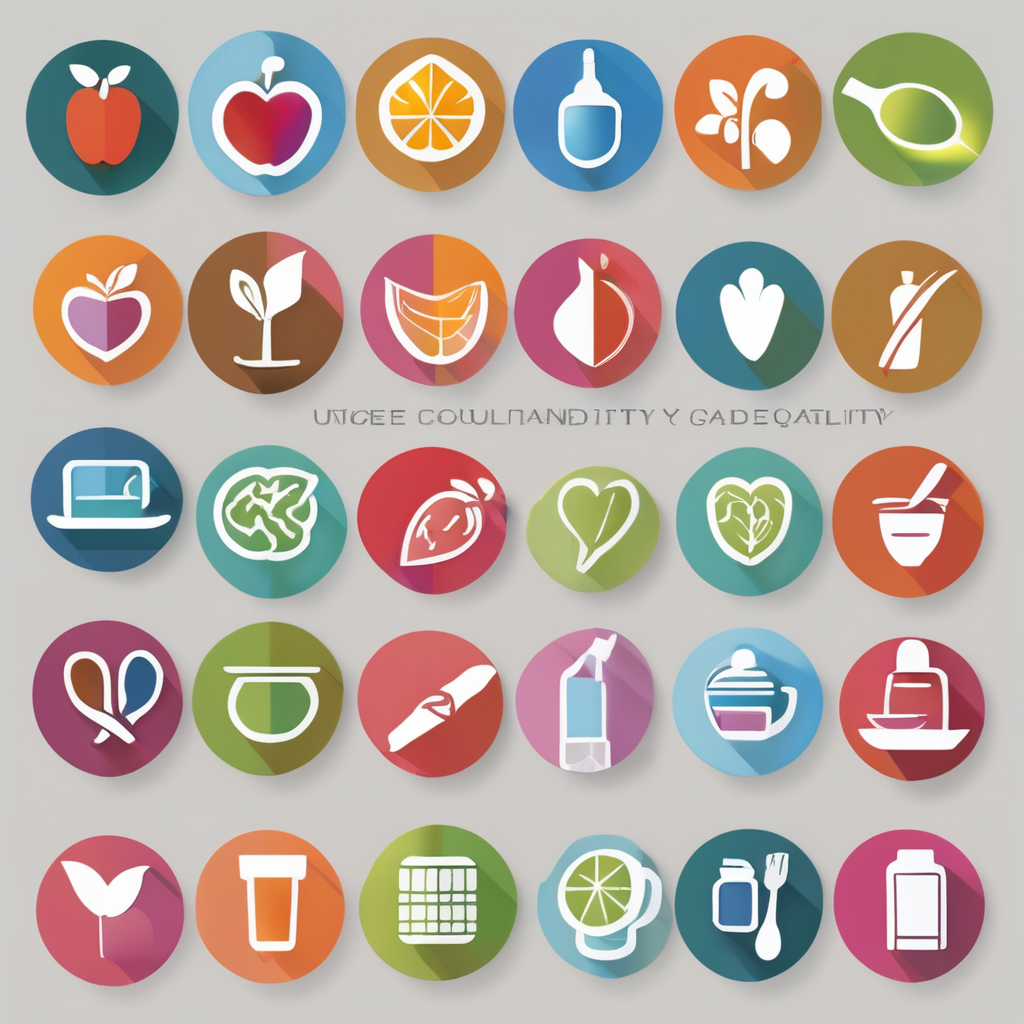Overview of Cognitive Support Apps for Dementia
Cognitive support apps serve as innovative dementia solutions, offering practical benefits to enhance the lives of individuals living with dementia. These apps aim to address the cognitive challenges associated with dementia by providing features that stimulate memory, aid in task management, and offer general cognitive support.
In the current market landscape, these digital tools are gaining traction, reflecting significant advancements in technology and dementia care. The surge in these applications demonstrates a growing recognition of technology’s role in supporting mental functions and delivering therapeutic benefits. Emerging trends highlight a shift towards more comprehensive app features, integrating real-time monitoring with personalized cognitive exercises.
Additional reading : Unveiling the Heart Health Benefits: Switching from Smoking to Vaping
The importance of technology in improving quality of life for dementia patients cannot be overstated. Cognitive support apps are uniquely positioned to foster independence, reduce anxiety, and enhance memory recall through structured activities and reminders. By utilizing intelligent algorithms, these apps allow for tailored interventions that accommodate the specific needs of each individual, promoting engagement and mental activity.
Ultimately, technology and dementia converge in these apps to provide accessible and user-friendly solutions that empower patients and assist caregivers in delivering effective, compassionate care.
Topic to read : Unraveling the Effects of Long-Term Space Travel on Human Bones and Muscles
Key Features of Effective Cognitive Support Apps
Understanding the app features that make cognitive support apps successful is vital to meeting the needs of dementia patients. An effective cognitive support app incorporates memory enhancement tools, a user-friendly design, and the ability to tailor the experience to the individual.
Memory Reminders
Effective apps often provide helpful memory reminders, which play a crucial role in supporting daily activities for those with dementia. Automated alerts can remind patients of appointments, medication schedules, or daily tasks, easing anxiety and promoting self-reliance.
Cognitive Games and Activities
Cognitive games and activities are often integrated into these apps to stimulate brain function. These include puzzles, memory challenges, and logic games that encourage user interaction, thereby increasing mental engagement and reducing cognitive decline.
Customization and Personalization
Customization is key in creating patient-centric experiences. Apps that allow personalization, such as setting preferences for tones or commands, enhance user satisfaction. Tailoring an app to a user’s habits and preferences improves its utility and encourages consistent use, which can significantly impact cognitive health.
By understanding and utilizing these key features, caregivers and patients can maximize the benefits these apps offer, addressing various cognitive challenges effectively.
Effectiveness of Cognitive Support Apps
Exploring the effectiveness of cognitive support apps sheds light on their role in dementia care. Effectiveness studies show promising results, highlighting improvements in memory, task completion, and overall cognitive function. Research often utilizes pre-and-post app usage assessments, demonstrating significant cognitive improvement among users. These methods provide a clear measure of the app’s impact.
User feedback also contributes valuable insights into efficacy. Many individuals with dementia report enhanced confidence in daily activities, attributing their cognitive gains to specific app features. These testimonials underscore the practical benefits observed in real-world scenarios, illustrating the transformative potential of these tools.
Experts support the integration of technology and dementia care. They emphasize that cognitive support apps offer non-invasive ways to boost mental agility and support caregivers. By combining user feedback with expert opinions, we gain a comprehensive understanding of these apps’ effectiveness. Whether through tailored exercises or engaging activities, the emphasis remains on fostering independence and quality of life. These apps represent a frontier in dementia therapy, building on technology’s capabilities to deliver crucial cognitive enhancement.
Practical Tips for Using Cognitive Support Apps
Navigating cognitive support apps can be daunting, but effective app usage tips simplify the journey. Start by selecting an app designed for the specific needs of dementia care. Many apps offer straightforward user guides, making it easier for users and caregivers to familiarize themselves with its functions.
Integrating Apps into Daily Life
Successfully incorporating these apps involves establishing a routine. Encourage regular interaction to maximize the benefits of interactive features. Setting specific times for app engagement helps seamlessly integrate it into daily life, enhancing consistency and fostering improved cognitive outcomes.
Supporting Family Involvement
Family support is crucial. Educating all family members on the app’s functionalities promotes a supportive environment, encouraging regular use. Providing reminders and celebrating progress can further enhance engagement.
Utilizing features such as family accounts or shared dashboards keeps everyone in the loop, especially when tracking task completions or cognitive improvements. By following these strategies, families enhance app effectiveness and contribute positively to a dementia patient’s quality of life.
Comparison of Top Cognitive Support Apps
When evaluating the top cognitive support apps, it’s essential to consider their feature analysis and cost-benefit analysis. These elements help identify the most suitable app for dementia care. Understanding the distinct offerings of each application enables better decision-making for patients and caregivers.
App A Overview
App A offers notable features like personalized reminders and engaging cognitive games. These features significantly support memory enhancement. Moreover, its user-friendly design ensures easy navigation, fostering a positive user experience.
App B Overview
In comparison, App B distinguishes itself with real-time monitoring capabilities. This feature facilitates user feedback and allows tailored interventions. App B’s strength lies in its ability to adapt to user needs dynamically, enhancing cognitive improvement through continuous updates.
App C Overview
App C focuses on affordability without compromising critical features. It delivers effective memory aids and customization options, keeping costs lower. As an affordable yet functional choice, App C’s combination of core features and accessibility makes it a competitive option in the market.
By analysing these aspects, caregivers and users can select an app that aligns with individuals’ specific needs, ensuring optimal support for dementia care.
Scientific Basis for Cognitive Support Apps
Cognitive support apps have emerged as a pivotal tool in dementia care, underpinned by a robust foundation of cognitive science. These applications are grounded in scientific research, addressing cognitive decline through targeted exercises and activities. The effectiveness of these apps hinges on principles from neuropsychology and gerontology, which inform their design and functionality.
The process of cognitive decline in dementia involves changes in memory, reasoning, and perception, necessitating evidence-based interventions. Cognitive support apps leverage scientific strategies to slow this decline, employing techniques like spaced repetition and memory cues. By engaging users in brain-stimulating activities, these apps facilitate cognitive resilience and maintenance of mental faculties.
Research backing these technologies highlights their significance and efficacy. Studies have shown that apps designed with a cognitive science approach enhance memory recall and task efficiency. The continual integration of research findings ensures that apps evolve to meet the intricate needs of dementia sufferers, providing tailor-made solutions.
These apps exemplify evidence-based practice, where the fusion of technology and scientific insight delivers impactful outcomes. As more research emerges, cognitive apps will further cement their role as indispensable aids in dementia management.
Resources for Further Exploration
Navigating the plethora of dementia resources can feel overwhelming. However, these resources provide crucial insights and support for caregivers and individuals seeking to enhance dementia care. Accessible and diverse, these tools empower informed decision-making about cognitive support.
For in-depth understanding, consider visiting authoritative websites like the Alzheimer’s Association, which offers a range of app recommendations and educational materials tailored for caregivers. Their guides cover improving cognitive assistance, memory enhancement, and best practices in dementia management.
Books like “The 36-Hour Day” provide comprehensive insights for families navigating dementia challenges. This classic resource helps caregivers balance daily responsibilities with app-informed dementia support.
Organizations such as Dementia UK offer live support and detailed caregiver support information, enriching understanding through expert advice and community involvement.
Additionally, exploring app databases can further broaden available solutions. Platforms like AgingWell Apps provide a consolidated library, helping select the perfect apps targeted at cognitive improvement.
By leveraging these resources, caregivers and family members can gain confidence, enhance understanding, and effectively integrate cutting-edge app solutions into everyday care strategies. This ensures holistic support tailored precisely to the unique needs of dementia patients.


